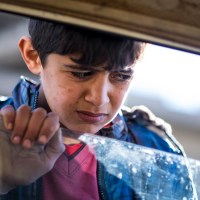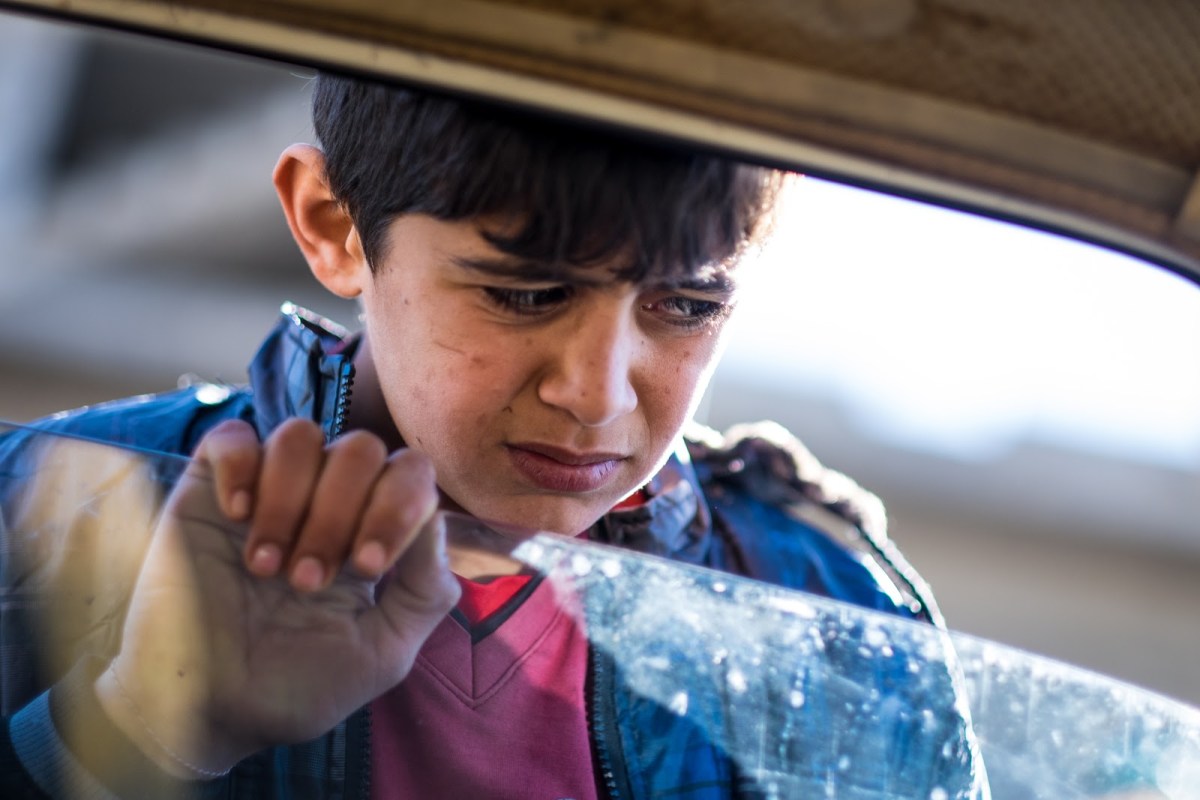When the fighting stops and people stumble out of hiding, and survivors are safe, there’s a joy.
They endured ISIS, the war, the terror.
That rush of joy and relief rarely lasts, though. After joy comes guilt, grief, lament, rage. Guilt for surviving when others didn’t. Grief over all that was lost. Lament over the wrongness of it all. Rage at the injustice, at the world’s indifference.
To survive, we bind everything up tightly, hold it close to the chest, and doggedly refuse to let them take us, kill us, change us. They will not win.
Grief happens when all of that finally unravels.
In the end, they always take something. There is always loss.
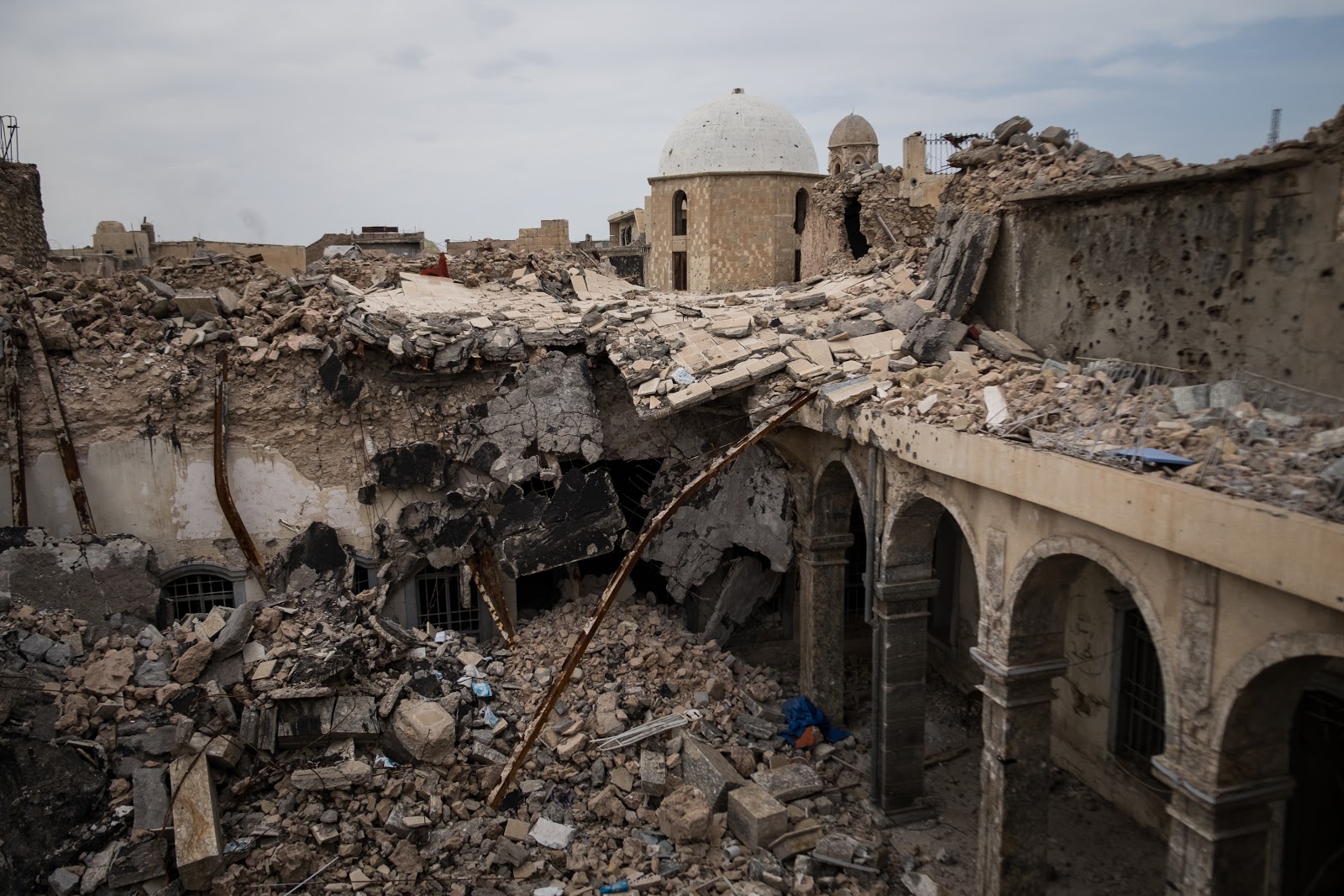
I doubt there’s a soul alive today in Iraq who hasn’t grieved loss from war or violence. So grieve. Now is the time to grieve. Wail and moan and mourn the loss of the Iraq you knew, the home you grew up in, the dolls you played with, the grassy spot where you picnicked, the father who took you there.
All over this great country, people are grieving loss. We’ve stepped through the rubble and seen remnants of the homes they’re grieving. We’ve wept over the bones of loved ones they’re grieving. We’ve heard stories of the life they’re grieving.
So we commit to grieve with them, to offer up prayers of lament alongside them, knowing their loss is profound. The act of lamenting with people we love isn’t some burden, it’s a privilege. We are not worthy to participate in their pain. It’s the Iraqis who deserve praise, because they stay open and willing to share their pain with others.
For me, the symbol of all that grief and loss and pain is this spot.
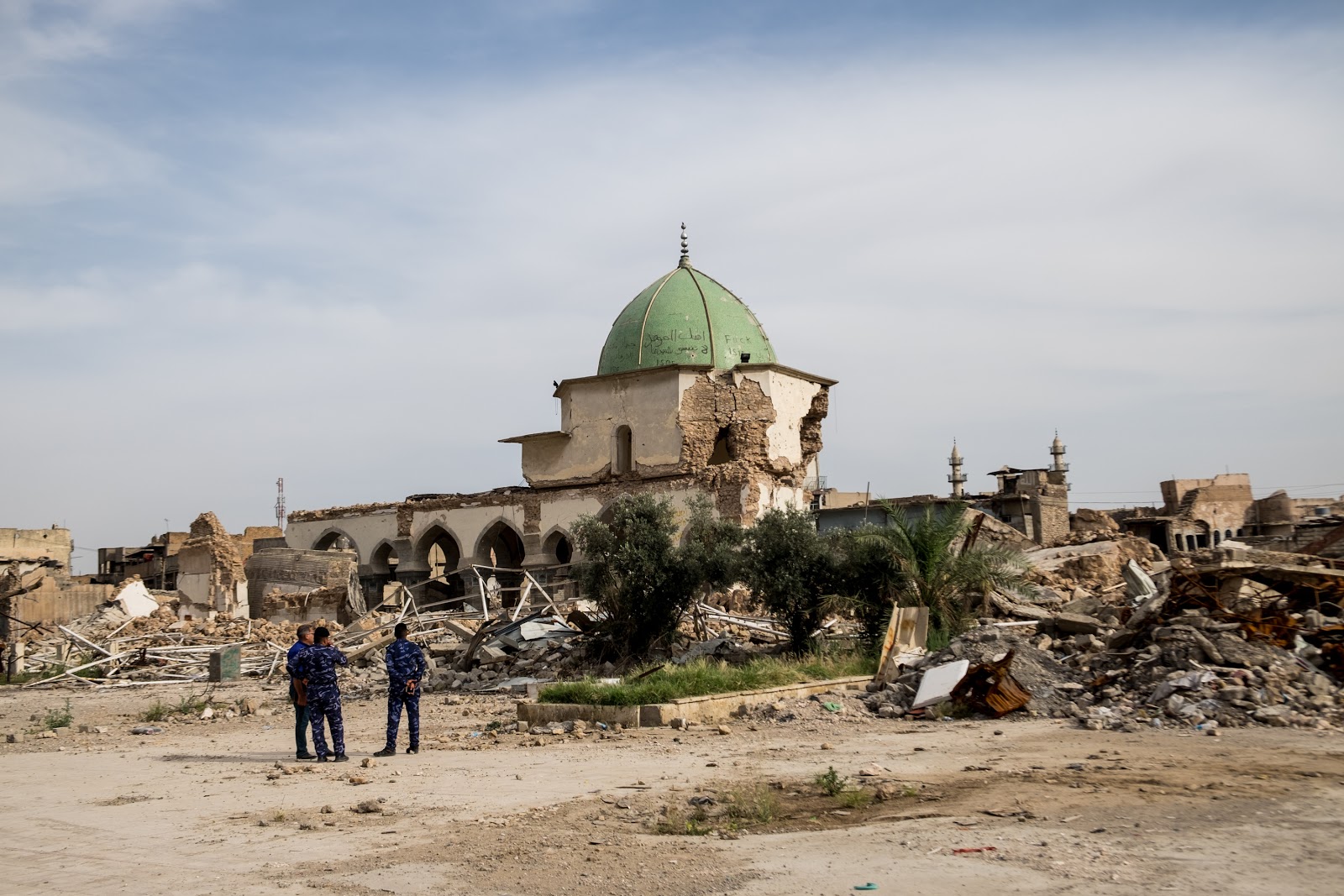
Most outside Iraq may see another ruined pile and move on, but I hope you’ll see more than that. The stories in this broken pile changed the world.
For many here in Iraq, this is where ISIS was born, and it’s where they died.
Hallowed, hellish ground—in the summer of 2014, a man in black strode into this mosque and declared ISIS’s new “caliphate”, calling all Muslims to join him. He declared, in effect, “I’m the leader who presides over you… so if you see that I’m right, help me.”

Some Muslims did join, but hardly any, really. Many ignored him, some laughed, most barely noticed, too busy caring for their children, going to work, and being perfectly normal people who love and live in the everyday. But his call did reach some young men and women, and they joined in the violence.
Finally, after three years of well-orchestrated brutality, ISIS was surrounded in this very mosque where they’d declared the beginning of their glorious empire—their last stand in Mosul. And they blew it up.
One year ago.
Standing in this very place recently, I thought of friends murdered by their empire. I thought of women I’d met who were taken as slaves, kids I’d hugged who’d been abused by ISIS, tortured, forced to fight, families ripped apart, executions, millions now homeless.
Lamenting with people we love isn’t some burden, it’s a privilege.
It was a quiet, heartbreaking privilege to be there alongside these friends as they heaved sighs of pain and forgiveness at that empire for the death of their own friends and family. ISIS took things from them they can never get back. No amount of love or legislation or laser-guided missiles can ever, ever bring back those lost.
Gone.
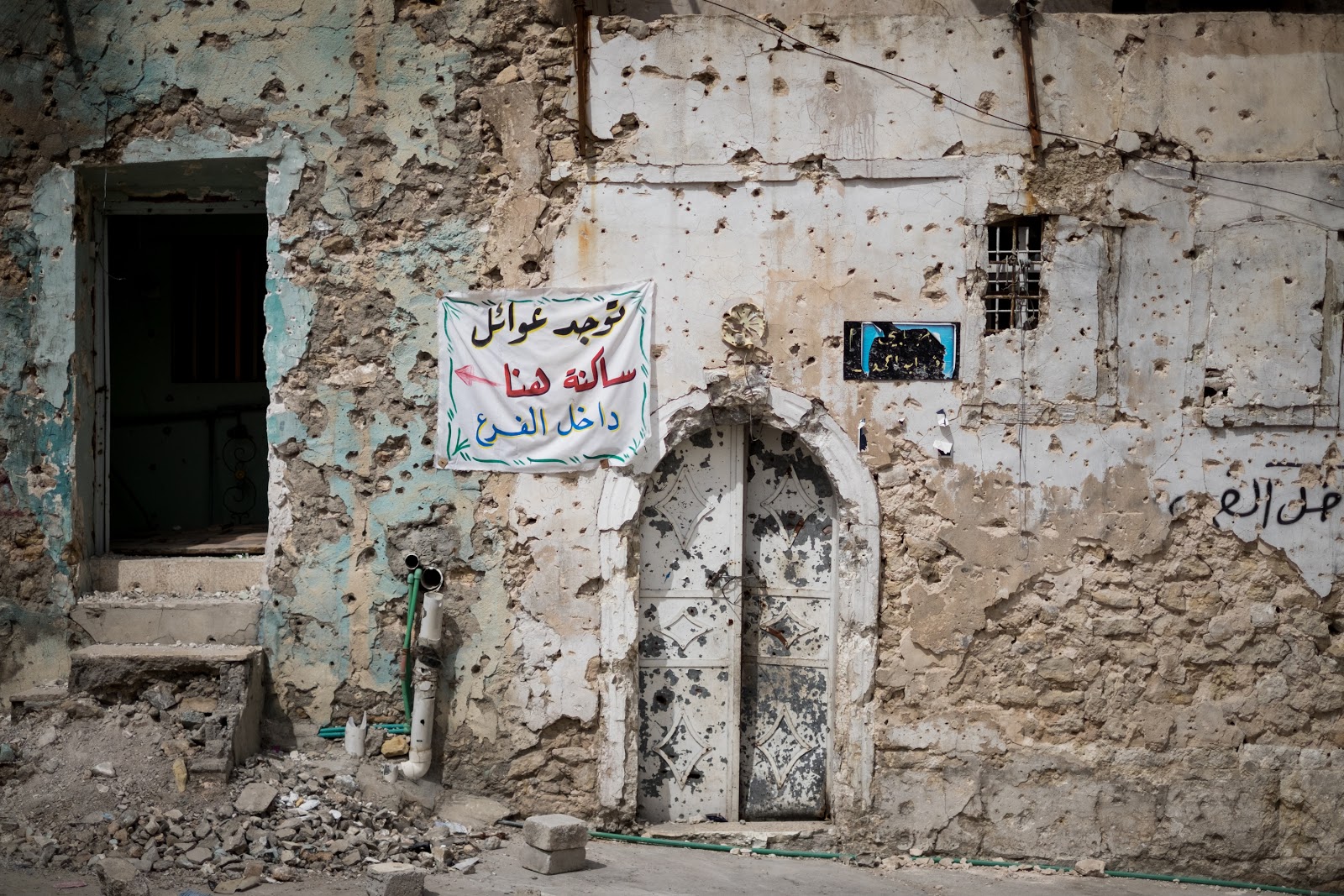
And that’s what we’re trying to accept right now: the Iraq we’ve known and loved for all these years is fundamentally different. It’s gone, and the only way forward is to let go of the Iraq we knew.
I fell in love with one kind of Iraq when I first came here at 23 years old. What about now? Will I love this Iraq, right here, today? How do you let go of what something was, then come back to it, and learn to love it for what it is now? And how do those who’ve lived here all their lives, who’ve never known any other home, do this?
I honestly don’t know, but our team is working hard to love Iraq as it is right now, because this is the way of resurrection, the way of “love anyway.” New life is poking up through the brokenness. In our anger and sadness, will we miss it? Or will we be the people who lament loss while cheering new life on, cultivating it, celebrating what others say is impossible?
So this is a simple challenge to myself and to you:
We don’t make the new life, but we can make way for it, and that’s what we’re choosing to do. For love.

